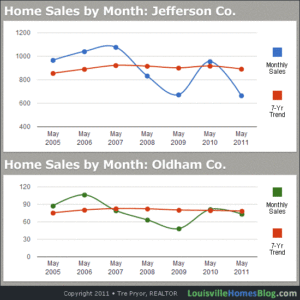Not everyone has the funds available to pay the total price of a house in cash from their bank account. Congratulations on your purchase if you were able to do just that! However, for such a large purchase, a mortgage loan is typically required. Which will require an appraisal. So should you waive the appraisal contingency in order to win the deal? Let’s jump in!

To start, let’s imagine that you are prepared to proceed with an offer and that you have all the documents you need to submit a mortgage application. That’s fantastic news, however, the loan amount entirely relies on the value of the house. There may be a problem if your offer ends up being more than the appraisal. This means you might not be able to get your entire loan amount approved. For this reason, if you’re applying for a loan, an appraisal contingency is an essential aspect of the real estate contract.
Say for a moment that you are in a situation to forgo the appraisal condition. If the house you have put an offer on has multiple offers, this can provide you with a competitive edge. Should you potentially waive the appraisal condition? What steps can you take if the appraisal is too low? Additionally, what exactly does “appraisal contingency” mean?
Top real estate experts with decades of experience understand how the appraisal contingency operates and what choices are available when a home appraises below the offer price. And finally, whether it is better to include an appraisal contingency in your real estate contract or not.
What is an Appraisal Contingency?
An appraisal contingency is a condition that needs to be satisfied before a property purchase closing can take place. This is per the language in the contract. The principal contingency is inserted to safeguard the buyer in the event that the appraisal result is less than the purchase price.
Because they will only lend you a certain percentage of the home’s actual value, the bank or financial institution issuing the loan demands an appraisal report to assess the actual value of the property and set the loan amount. The appraisal is required to make sure that the buyer doesn’t pay more for the property than it’s worth. This gives the lender assurance that, in the event that the buyer fails on the loan, the value of the property will make up for their lost investment.
The contingency is included as insurance in the event that the appraisal is less than the purchase price, the buyer is entitled to immediate termination of the contract and a refund of their earnest money.
Quick Appraisal Facts
- Appraisals typically cost between $300 and $600.
- The NAR study also found that 32% of buyers who waived the appraisal contingency did so because they were confident in the home’s value.
- According to a study by the National Association of Realtors (NAR), 66% of buyers waived the appraisal contingency when purchasing their home.
When You Should and Shouldn’t Waive the Contingency
Waiving the appraisal condition can occasionally benefit both the buyer and the seller, but that depends on the buyer’s financial situation. It isn’t useless to waive the appraisal contingency if the buyer will require a mortgage loan and include a finance addendum in their contract. The buyer can check a box that if the appraisal doesn’t meet the home’s value, they can back out and will forgo their earnest money. Each principality has its own laws and regulations, so check the contract in your area.
An appraisal contingency is not required for cash buyers. That is unless the buyer wishes to pay for one. Waiving the condition will make the offer stronger which is important in a multiple bid situation. Offers with no appraisal condition are preferred by homeowners selling their property.
In essence, dropping the appraisal contingency could help a buyer win the house if they want it badly enough, and have the resources to do so, especially if there are numerous offers.
When to Waive the Appraisal Contingency
Waiving the appraisal contingency might only be an option for buyers who are dealing with a real estate professional who “can confirm the property’s current value and perhaps the future potential of value.” Other reasons why you might waive the appraisal contingency:
- Is the property is in a premium location?
- Does it have room for expansion?
- You already know it’s your dream home.
If the buyer is able to put down a sizable down payment, that is another situation in which waiving the appraisal contingency might be a wise choice. In this case, even if the appraisal comes in below the listing price, the loan would just cover the remaining debt owed by the buyer, and the lender might still approve the loan. However, before deciding, always speak with your lender and real estate expert.
Action to Take When Appraisal Comes in Low
Most of the time appraisals don’t come in low. But when they do here are the options buyers will want to take.
1) Get a Second Appraisal
You might be able to request a second appraisal. The appraisal firm is hired by the lender. This means the buyer can ask them to employ a different appraiser for a second opinion. There will need to be justifications for why they believe the initial appraisal is inaccurate. These may be a few of the causes:
- Inaccurate data in the initial evaluation
- Home elements that were less evident but were overlooked in the initial appraisal of new or enhanced features
- Like recently sold properties (comps) in the same neighborhood that sold for more money than the appraisal
Some contingencies may give the buyer the option to secure a second appraisal on their own dime if the lender declines to arrange for one.
The real estate agent has the option to submit a challenge to the appraisal firm as an alternative to asking for a second evaluation. The agent’s new pertinent comps are by far the strongest support for disputing an appraisal. These could be used as leverage to get the appraisal firm to reevaluate their estimate.
2) Request a price reduction from the seller.
It is appropriate to ask the owner to lower the purchasing price. This is particularly true if the house has been listed for a long time. There is a chance that the subsequent evaluation from a different buyer may also be low.
3) Cover the difference on your own
If all the other methods are unsuccessful, the buyer may choose to pay cash for the difference. This is to keep the contract from failing. Even though it’s not usually the first or best choice, if you really like the home and the deal is on the line, it can be worthwhile for you to take further steps to ensure that you get the keys.
Final Takeaways
Your finances will likely be squeezed when you purchase a property, so any savings you can make will be appealing. You can save hundreds of dollars by not getting an appraisal if you’re paying cash for the home, but it might end up costing you more. Both benefits and drawbacks of a lender-waived appraisal do exist.
You will have some protection against overpaying for your property if you get an appraisal performed by an appraiser. It gives you a clearer idea of whether you paid the correct amount for the house. And may enable you to avoid paying thousands of dollars in interest on your mortgage.
Frequently Asked Questions
What are the potential consequences of the appraisal coming in lower than the agreed-upon purchase price?
If the appraisal comes in lower than the agreed-upon purchase price, it is possible that the buyer will not be able to get a loan for the full purchase price and may have to renegotiate the purchase price with the seller.
Is there a way to avoid the risks when you waive the appraisal contingency?
Understanding all the risks is key. Make sure that the appraisal was professionally done. Learn about all your options and get valuable advice was a real estate expert.
What is the purpose of an appraisal contingency?
An appraisal contingency is put in place in order to protect the buyer from getting stuck in a bad deal. This contingency allows the buyer to back out of the contract if the appraised value is less than the purchase price and still keep your earnest money. It does depend on the language in the contract.



